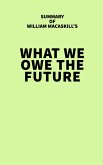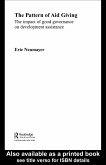At the turn of the 20th Century, something happened to the American identity. Brands became the product sold as opposed to an actual product. Coca-Cola, Pepsi, Eggo, Ford, Chevrolet, etc. all became the major part of consumer focus as opposed to the actual product itself. In short, the brand became king.
This lasted for decades, the brand selling the product. Then, in the 21st century, something happened. The world tilted a bit. And things became strange and full of multiple meanings. The internet and smartphones gave the masses access to all the knowledge of humanity. The marketplace of ideas would be flooded.
Social media developed. We got Facebook and Instagram. We got Twitter (now X). We got Reddit and countless copycats, some surviving. Fake news is now a thing, everyone has an opinion, everyone is informed, and everyone is certain they are right. We became sponges for lies. And our identities changed.
Gibson's novels have always held a mirror up to culture, especially when it comes to bodily identity.
"Pattern Recognition", written in 2002--before the advent of the iPhone and when Facebook was still running on a server at Mark Zuckerberg's university--provides us with a world where image is everything.
This book explores how William Gibson predicts the development of technology and the movement of global Capitalism influences the identity of the body. Using William Gibson's novel, "Pattern Recognition," as a springboard, this book utilizes multiple theoretical models to interpret how the modern body--both human body and body politic--is heavily influenced by branded ideology coming from technology and social media.
Before influencers.
Before YouTube stars.
Before Trump:
There was Cayce Pollard and her allergy to logos, influencing how corporate moguls developed their brands.
Dieser Download kann aus rechtlichen Gründen nur mit Rechnungsadresse in A, B, CY, CZ, D, DK, EW, E, FIN, F, GR, H, IRL, I, LT, L, LR, M, NL, PL, P, R, S, SLO, SK ausgeliefert werden.









